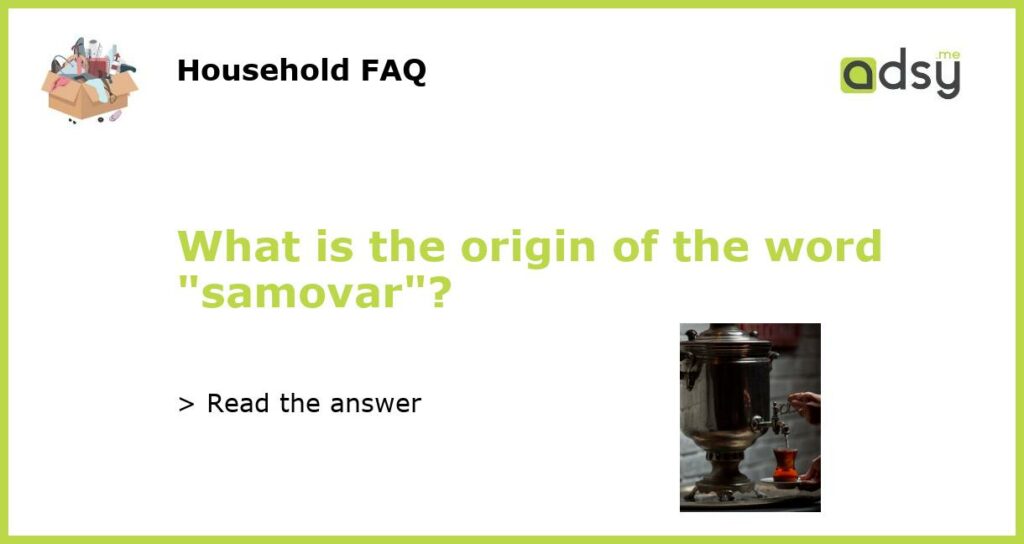The Origin of the Word “Samovar”
If you are a fan of traditional Russian culture, you may have come across the word “samovar” at some point. A samovar is a Russian tea urn that has been a staple in the country for centuries. But have you ever wondered where the word “samovar” actually comes from? Let’s explore the origin of this fascinating term.
A Persian Connection
The word “samovar” has its roots in the Persian language. In Persian, the word “samovar” is a combination of two words, “samu” meaning self and “vahr” meaning boiling. When you combine these words together, you get “samovar,” which translates to “self-boiler.” The Persian influence on the word indicates that the concept of the samovar may have been introduced to Russia through Persian traders or travelers.
Russian Adoption of the Samovar
Although the word “samovar” is of Persian origin, it was the Russian people who truly embraced the use of this tea urn. The samovar quickly became an essential part of Russian households, particularly during the 18th and 19th centuries. Russian tea culture revolves around the samovar, which is used to brew and serve tea. The popularity and widespread use of the samovar in Russia led to the word becoming a part of the Russian lexicon.
The Spread of the Samovar
Over time, the samovar made its way beyond Russia and became popular in other countries as well. This is likely due to the influence of the Russian Empire, which expanded its territory and cultural influence. As Russian travelers, traders, and diplomats interacted with people from different parts of the world, the tradition of the samovar was shared and adopted in various regions. Today, you can find samovars being used and cherished not only in Russia but also in countries like Iran, Turkey, Armenia, and Azerbaijan.
A Symbol of Russian Hospitality
The samovar is not only a vessel for making tea but also a symbol of Russian hospitality. It is often seen as a center of gathering and a way to welcome guests. In traditional Russian households, the samovar is brought out during tea ceremonies and special occasions, such as weddings or holidays. The host or hostess takes pride in serving an abundance of tea from the samovar to demonstrate their hospitality and generosity.
In conclusion, the word “samovar” has a Persian origin, stemming from the words “samu” meaning self and “vahr” meaning boiling. The Russian people adopted the samovar as a central part of their tea culture, leading to the word becoming a part of the Russian lexicon. The popularity of the samovar spread beyond Russia, thanks to the influence of the Russian Empire, and it is now cherished in various countries. The samovar is not only a functional tea urn but also a symbol of Russian hospitality and a way to welcome guests.






